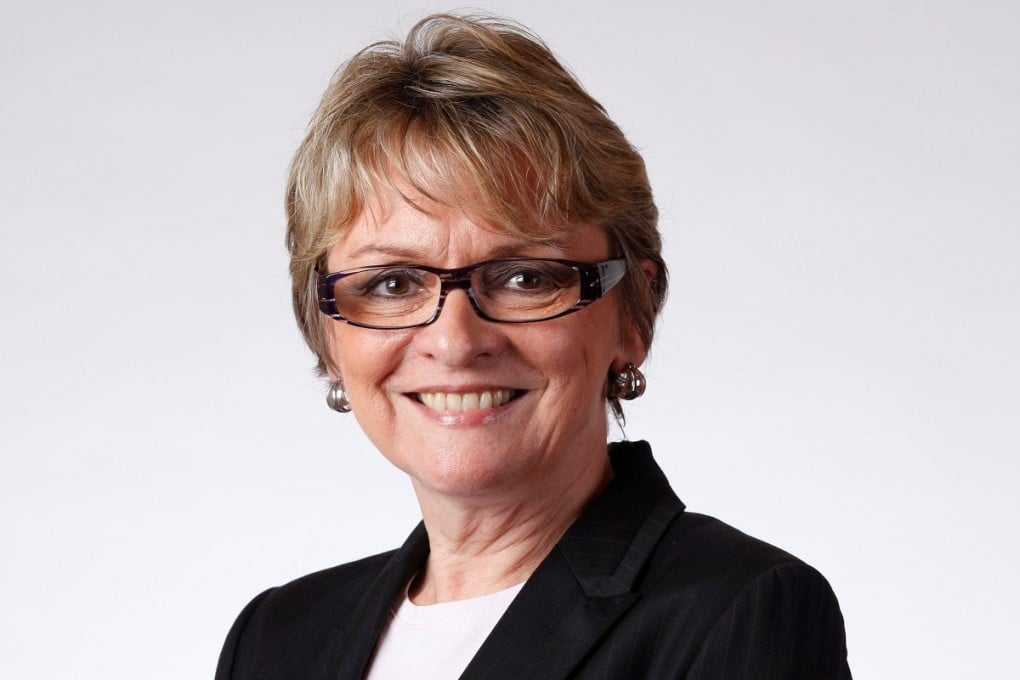Captain of a mighty ship
ESF Leaders: Heather Du Quesnay

[Sponsored article] Heather Du Quesnay’s eight-year tenure as ESF’s chief executive began in the summer of 2004 when she received a phone call from executive recruitment firm Korn Ferry. “An unknown voice asked me if I had ever considered working in Hong Kong,” she recalls.
With her daughters grown up and her husband supportive of the career opportunity, by Valentine’s Day of 2005, Heather was trying her new desk out for size. She especially enjoyed the view of Happy Valley from the ESF Centre, which was then next to Bradbury School on the way up to the Peak.
Heather has never been one to shy away from a challenge. During her appointment process, ESF Chairman, Felice Lieh-Mak, made it clear there would be many challenges and obstacles to overcome and she was receiving South China Morning Post reports of the battles in the Legislative Council before she even left England.
"I thought the agenda would take three to five years at the most, but we more or less got through it in eight," explains Heather, who recalls the demanding process of persuading the 100 strong governing body to make crucial decisions for the Foundation’s future, from a new pattern of governance, to the remuneration of employees, to the level of fees, all in the hope of preserving the government grant or subvention for as long as possible.
It was also under Heather’s leadership that ESF opened up a new kindergarten in Wu Kai Sha and two new all-through private independent schools, Renaissance College and Discovery College. The new schools followed International Baccalaureate programmes all through from the early primary years to the Diploma for 18 year-olds.
"It was a great opportunity to see the more open-ended, problem-solving IB style operating alongside the best of traditional English practice with its emphasis on literacy and numeracy. The influences went both ways. We all learned a lot " she recalls. "I still remember the Discovery College opening ceremony, with dozens of youngsters drumming along the metal rails of the balconies. It was the stomp of the future marching in! "
Heather’s fondest memories of ESF are, for the most part, centred on students. "I loved the way they supported each other,” she says. “In ESF it was cool to learn and the students celebrated each other’s achievements whether it was in sport, music or academic subjects. Nobody was ever made to feel a geek, but there was a lot of kindness too in the help given to students with disabilities.

“The arts were our passion, from the wobbling first steps onto a stage in Year 1 to the super-confident Year 6 musicals where every child had a part, while the secondary schools put on performances to rival the West End or Broadway. Staff had only to look at the faces of parents in the audience to know how much they had achieved. “
A key area for Heather was to raise standards in Chinese language, where ESF was lagging behind some of the other international schools. “I still believe that children who want a future in Hong Kong will need to know Mandarin and educated people should be familiar with Chinese culture and history in what will be seen increasingly as Asia’s century.”
Sharper memories include anxiously awaiting the first IB Diploma results (after the bitter battles over the IB’s introduction), which were analysed at an agonisingly slow pace on primitive software. "The students did brilliantly,” says Heather, “and it soon became a slick process. And of course, once the schools had established a track record, there was less need for sleepless nights.”
Boasting an impressive résumé before moving to Hong Kong, Heather was chief executive of the UK's National College for School Leadership. She was also director of education for Hertfordshire County Council and the London Borough of Lambeth. However, she never felt closer to colleagues than during her tenure at ESF.
"I knew every principal and every school council chairman personally, most of the vice-principals and many of the teaching and support staff," explains Heather. “The spirit of community was partly down to the close-knit relationships expatriate staff form when they are far from home but it also owed something to the Chinese sense of family. Suoport staff and administrators played a key part in developing our culture and were valued just as highly as teachers.”
"I believed in ESF’s potential as an educator, and the vibrancy of the learning culture among staff at all levels and among students was almost tangible . For me it was the perfect learning community!”